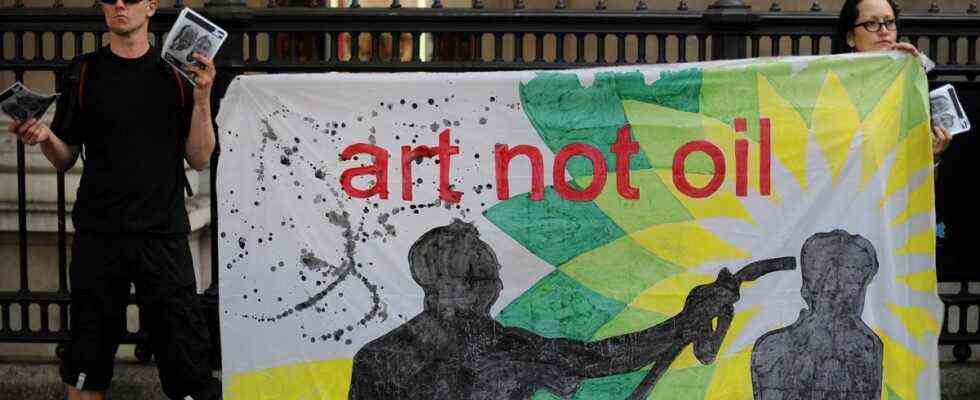London’s National Portrait Gallery (NPG) and oil company BP have announced they will not be extending their partnership beyond December 2022 when their joint sponsorship deal expires. BP has supported NPG’s annual £35,000 portrait award, the BP Portrait Award, for three decades. The split comes as no surprise. Rather, it is the consequence of a long-lasting, vehement campaign by environmentalists and artists against the company’s cultural sponsorship. Groups like Extinction Rebellion argue that its activities are unethical and that the promotion of fossil fuels cannot be justified in view of the climate crisis. Therefore, cultural workers should clearly differentiate themselves from him.
Dark goo and feathers in the Tate Britain entrance
The NPG is the latest institution to separate from BP under this public pressure. As early as 2010, after the “Deep Water Horizon” oil spill in the Gulf of Mexico, for which BP was responsible, a protest group staged their own small oil spill: They spilled a viscous, dark liquid in front of the entrance and Tate Britain and covered it with bird feathers – a protest tactic that would become a trademark of BP’s opponents. Tate also had a partnership with BP at the time; In 2017 it was dissolved.
In 2019, the Royal Shakespeare Company ended its sponsorship deal with BP after actor and former Globe Theater director Mark Rylance resigned from the RSC in protest at their continued relationship. According to Rylance, this allows the company to “mask the destructive reality of its activities”. Shortly thereafter, the National Galleries of Scotland announced they were phasing out their ties with BP due to climate concerns.
In 2019, five former Turner Prize winners – Antony Gormley, Rachel Whiteread, Anish Kapoor, Gillian Wearing and Mark Wallinger – joined a group of around 80 artists, including BP Portrait Prize winners, who wrote an open letter to NPG Director Nicholas Cullinan to end ties with BP. The letter said this was necessary to ensure the gallery remains a “forward looking institution that is on the right side of history”.
The NPG’s decision puts increasing pressure on the last remaining major British cultural institution still sponsored by BP, the British Museum. There, the partnership has also been controversial internally for some time.

